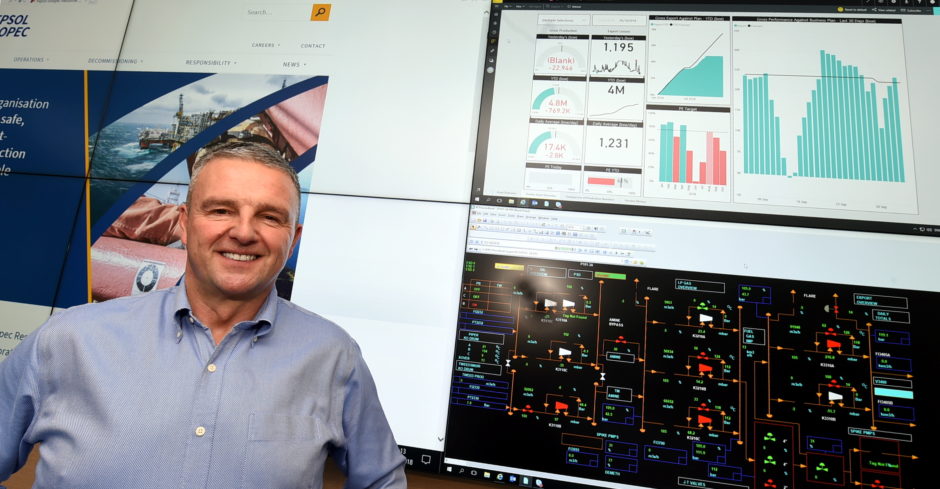
As we approach the end of another eventful year in oil and gas, it’s timely to reflect on the significant progress made by the industry’s technology leadership board (TLB) to articulate and realise its strategy over the last 12 months.
This strategy aims to steer the industry from the silo-based, competitive mentality of the past to a more collaborative, open-minded and sharing culture of the future that will enrich us all in terms of sustainability, safety, and efficiency.
Our industry continues to face challenges but will adapt and respond as it has always done in the past. Technological innovation will have a key role to play in this.
The TLB has considered where the UKCS could end up if it doesn’t adapt and has mapped out a strategy for the best possible outcome. In our ambitious vision, the industry puts the old ways behind it and becomes the most technologically advanced offshore industry in the world, delivering safe and secure energy, increasing exports and supporting the creation of the net-zero economy.
We’ll do this by collaborating on technological innovation and deployment. By working closely with our supply chain and not against it and by harnessing the benefits of working together as a UKCS ecosystem, rather than competing and hoarding information and data.
Together we can successfully manage the energy transition and maximise economic recovery.
In the last year we’ve completed and rolled out our strategy. We’ve been scanning the industry horizon to identify the top technology priorities so that R&D budgets can be targeted efficiently and that the OGTC’s solutions centres can be aligned with these priorities. We’ve identified best practice in technology, which will be incorporated into the MER UK stewardship model.
We’ve also acted as a catalyst to persuade key players to share intellectual property, to collaborate and to network at industry, regulatory and government level. It’s vital that we prepare the market for the new technologies to ensure that they are deployed in the field on a scale that makes a difference and ensures a worthwhile return on the initial investment.
In doing this we have been working closely with the OGA, the OGTC and the MER task force on delivering the R&D and the practical and tangible outcomes.
Promoting digitalisation and encouraging technology deployment have been at the heart of our strategy in 2019. There are many examples of technologies on which the TLB has brought industry focus.
Non-intrusive inspection (NII) technology is just one example of the game-changing technological deployments we are working on with the OGTC. It could save North Sea operators up £250 million a year. Repsol Sinopec Resources UK has been pioneering these NII techniques in the UKCS, partnering with supply chain expert Sonomatic.
Where traditional techniques involve shutting down process vessels or sending in personnel, a 2018 study by the OGTC concluded that a 47% reduction in intrusive inspections could be achieved through the implementation of NII. We are already seeing the enormous safety benefits of reducing work in confined spaces and removing the need to break process containment.
Another project that we showcased at Offshore Europe is the huge potential of so-called “seismic in the cloud”, which is transforming exploration analysis. It is being developed by Chevron and Osokey, a specialist in cloud and data analytics, with support from the OGTC.
The project will revolutionise the approach to subsurface technical work by delivering rapid access to seismic data, improving collaboration and greatly increasing workflow efficiency. This will drive productivity and reduce costs.
Next year will be all about supporting and accelerating the deployment of these and other technologies – building on these initial successes and removing obstacles to their adoption.
But while technological innovation and adoption is vital, it’s the people who make all the difference. The common denominator of these success stories has been the industry leadership provided by companies driving these projects forward and partnerships with our supply chain.
Our technology sponsors are central to sharing best practice, encouraging collaboration and deploying proven technologies.
The TLB is asking 12 more companies to play an active role as technology sponsors, looking at a comprehensive portfolio of MER UK technologies, from exploration to decommissioning, digital and clean energy.
These sponsors will provide strategic direction, defining industry milestones for technology readiness and uptake. They will communicate with peers on technology deployment opportunities and engage the supply chain on bringing more innovation to the industry.
The TLB will actively support these sponsors with an execution team seconded from the industry.
The future is looking bright and if we continue to collaborate and innovate the UKCS can take its place as the most technologically advanced offshore industry in the world.
Bill Dunnett is co-chairman of the Technology Leadership Board
Recommended for you
